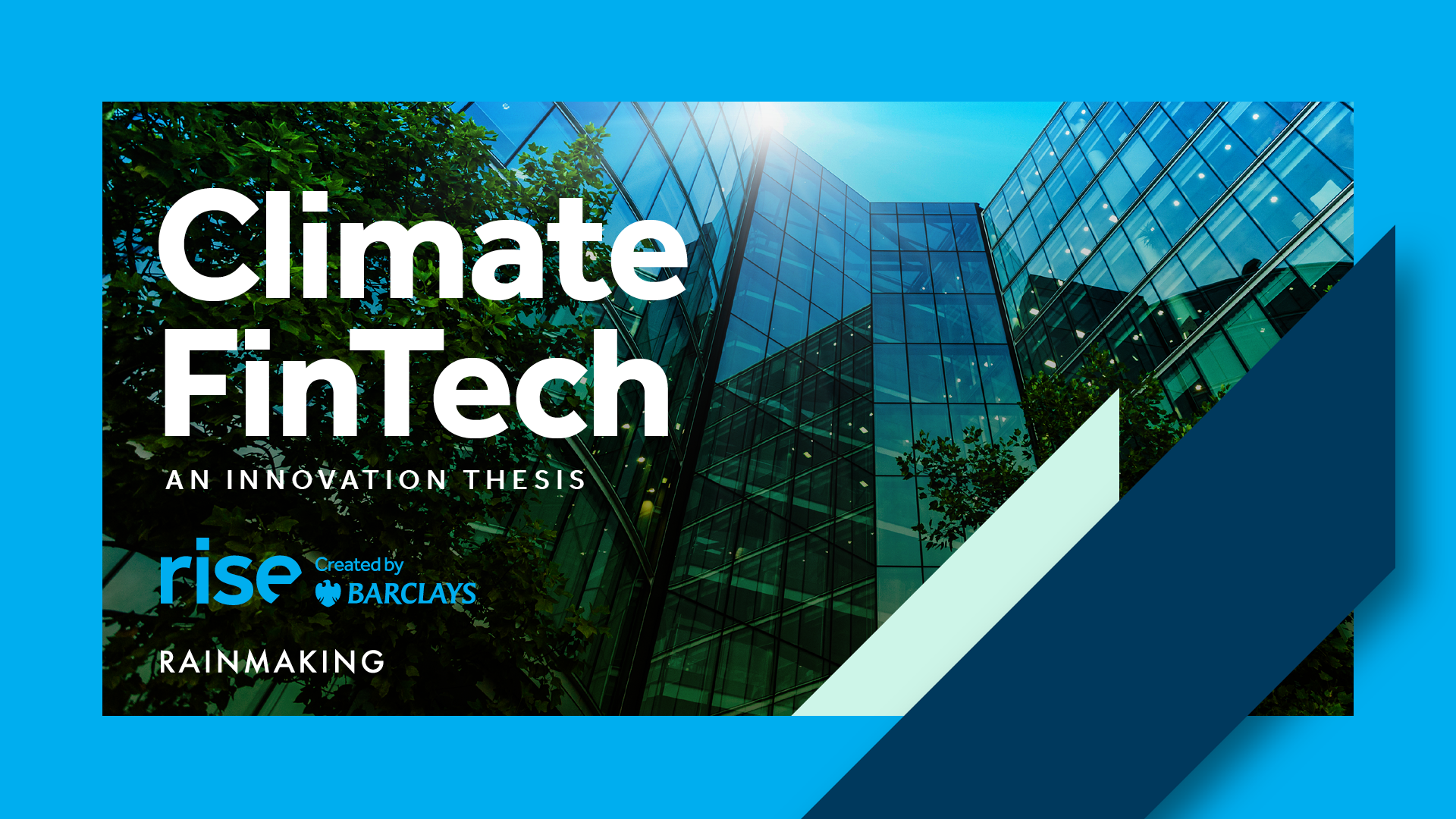Leading with a Data-First Mindset in Fintech: The Currency of Success in the Age of AI
By Darton Rose, Principal, Data Solutions, Wolf & Company Success depends on making the most of one of our most valuable assets:...
Blog A Few Questions about Fundraising with Data Advocate Sarah Lamont
Feb 27, 2023
Over the next few months, we’d like to introduce you to some of the sponsors, partners, advocates, and entrepreneurs who make up the unique Fintech Sandbox community, and without whom our small team could not provide fintech startups with access to critical data and resources, entirely for free.
First up is Sarah Lamont, a Data Advocate who helps us evaluate startups that have applied for admission to our Data Access Residency. Her day job is as an investor at Fintech Sandbox sponsor F-Prime Capital.
While most startups apply to Fintech Sandbox before speaking to venture capital firms, raising a seed or Series A is usually high on their list of things to do, so we thought we’d ask Sarah to provide some guidance that might be particularly helpful to first-time entrepreneurs who have not had to raise venture capital before.
Financial data is expensive! i.e., cost-prohibitive for startups who are caught in the catch-22 of ‘need money for data, need data to build my product, need product to raise money’. So I volunteer time as a Data Advocate to help funnel early-stage companies into the Sandbox and get their product off the ground, and because it gives me the chance to meet entrepreneurs when they’re still in build-mode, outside of the fundraising context.
It’s highly recommended to not do this (and doing so is a bit of a yellow flag). Investors may be reviewing hundreds or even thousands of pitch decks per year, and signing an NDA for each would be putting undue stress on their legal teams. Consider lighter weight options for staying in control of who sees your pitch deck e.g., email/password requirements or link expirations.
There’s no hard and fast rule, but the first meeting should be 1-2 (co-)founders. Investors will want to meet the rest of senior leadership (e.g., product, marketing) at some point during the diligence process, but those meetings can be scheduled separately after a first few conversations.
You want to be respectful of your customers’ time and ask for minimal favors, but also recognize that voice of the customer is one of the more important data points for early-stage investors. You should save the customer introductions until investors have given you the signal that they’re nearing the end of their diligence process and trending positively towards a term sheet.
It’s a bit more art than science (and becomes more science than art in later stages). Most go the route of considering qualitative factors – like founding team, opportunity size, existence of early pilots – while also weighing quantitative considerations like expected exit value and return on investment.
Yes. An over-inflated seed stage valuation puts you in a more difficult spot to raise funds at later stages, as investors will hesitate on price unless you have significant traction to justify the valuation.
This is a great step to take during the diligence process. You should take this step when you’re nearing a term sheet, or when investors are asking for introductions to some of your most valuable customers (which, as mentioned previously, should also ideally be towards the end of the process).
Introductions to other VCs is one of the quicker-wins you can get out of VCs, and in most cases you can and should ask for them. If the pass is due to stage or sector, they can help you identify VCs whose fund mandate is more aligned to your company and get you a warm introduction.
Investors will have varying preferences on whether they want to walk through a deck or keep it more conversational, Q&A style. Get a feel for that upfront and adjust the pitch accordingly.
As for landing a meeting, don’t feel compelled to meet every VC through a warm introduction. Cold outreach works – but do make sure the message is tailored to that investor or fund specifically. It doesn’t send a good signal when you send a seed-stage fintech deck to a growth-stage healthcare investor.

By Darton Rose, Principal, Data Solutions, Wolf & Company Success depends on making the most of one of our most valuable assets:...

New Sponsors and Data Partners Part 1 of our review of the first six months of 2024 covered the 19 startups we...

A guest blog post from our friends at Rise, created by Barclays. Ever wondered how the fintech ecosystem can play a part...